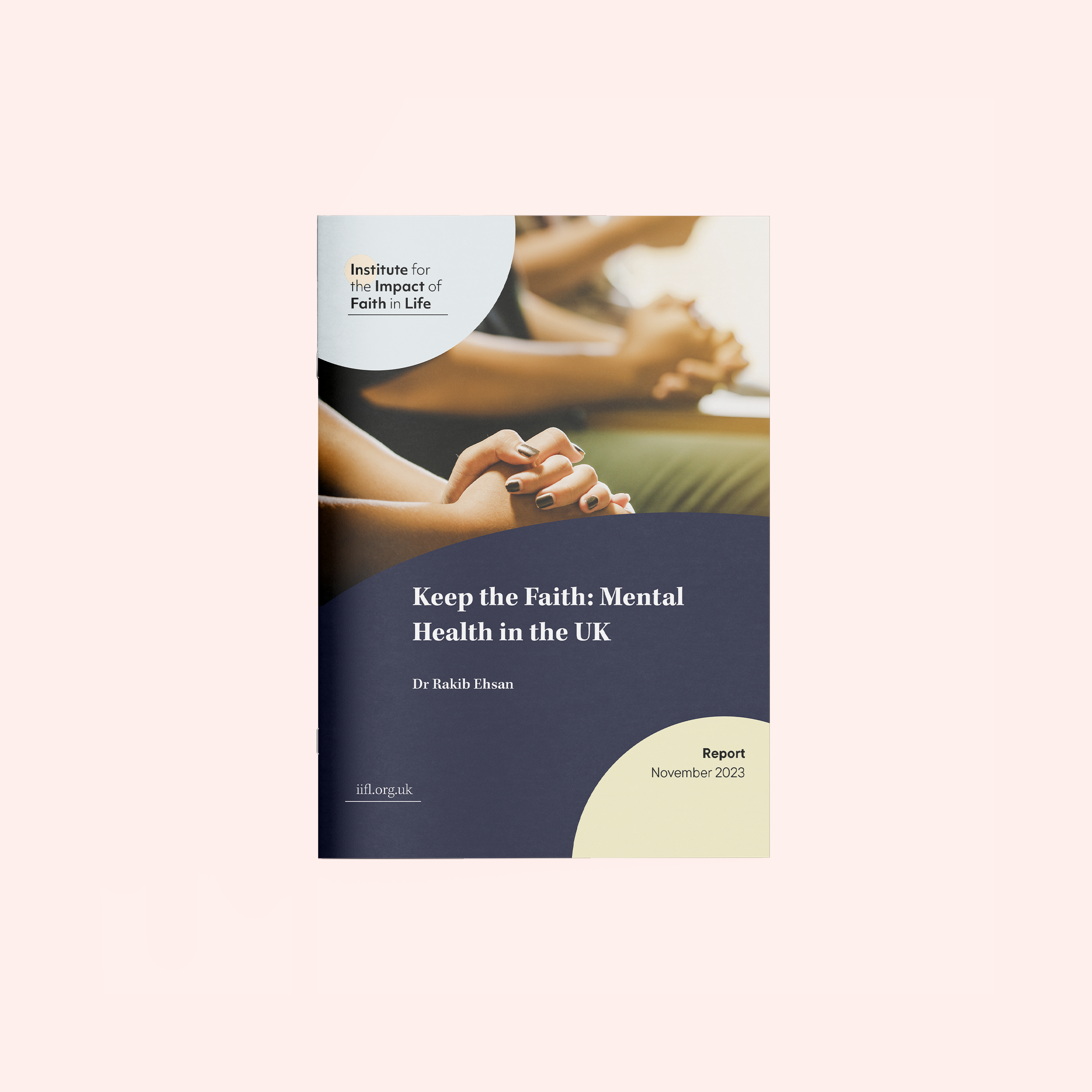Happiness
- Among those who reported that their religious background is important to their personal identity, over three in four said they were happy as a person (76%). This drops to 58% for those who said that their religious background is unimportant to their personal identity.
- Among those with a stated religious affiliation, over seven in ten (74%) said that they were happy as a person (with 9% saying they were unhappy). For atheists, 52% said that they were happy, with nearly a quarter – 24% – saying that they were unhappy.
Resilience
- Among those who reported that their religious background is important to their personal identity, over three in four said they were confident over handling the challenges that come with life (76%), with 7% saying they are unconfident.
- For those who say their religious background is not important to their personal identity, 63% report being confident over handling the challenges that come with life, with nearly one in five – 19% – saying they are unconfident.
- Among those with a stated religious affiliation, over seven in ten (74%) said that they were confident over dealing with the challenges that come with life (with 8% saying they were unconfident). For atheists, 56% said that they were confident, with nearly a quarter – 24% – saying that they were unconfident.
Self-control
- Among those who reported that their religious background is important to their personal identity, 74% said that they had a high level of self-control in their everyday life, with 6% saying they had a low level of self-control.
- For those who stated that their religious background is unimportant to their personal identity, 57% said they had a high level of self-control in their everyday life, with nearly one in six – 16% – saying they had a low level of self-control.
- Among those with a stated religious affiliation, seven in ten – 70% – said that they have a high level of self-control in everyday life (with 7% saying that they have a low level of self-control). For atheists, 51% said it is high, with one in five – 20% – saying it is low.
Optimism
- Among those who reported that their religious background is important to their personal identity, 69% said that they were optimistic over their own future, with 10% saying they were pessimistic.
- For those who said their religious background is unimportant to their personal identity, under half – 48% – said they were optimistic over their own future. Over a quarter – 27% – said they were pessimistic.
- Among those with a stated religious affiliation, 65% said they were optimistic over their own future (with 12% saying that they were pessimistic). For atheists, 42% reported being optimistic, with three in ten – 30% – saying they were pessimistic.
Life satisfaction
- Among those who reported that their religious background is important to their personal identity, over three in four said they were satisfied with their life (76%). This drops to 61% for those who said their religious background is unimportant to their personal identity. In the former group, 8% reported being dissatisfied with their life – rising to 23% for the latter group.
- Among those with a stated religious affiliation, 74% reported life satisfaction (with 9% saying that they were dissatisfied with life). For atheists, 53% reported life satisfaction, with over a quarter – 26% – saying they were dissatisfied with life. For agnostics, 62% reported life satisfaction, with 23% saying they were dissatisfied with life.


